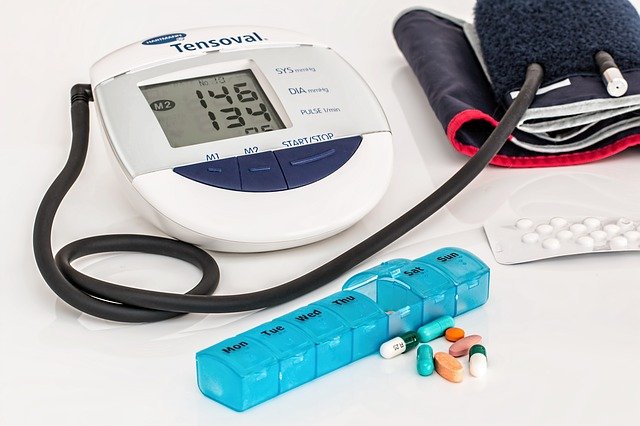
Changes, either from genes or the environment, in the body’s normal functions may cause high blood pressure.
These causes include changes to kidney fluid and salt balances, the renin-angiotensin-aldosterone system, sympathetic nervous system activity, and blood vessel structure and function.
Researchers continue to study how various changes in normal body functions cause high blood pressure. The key functions affected in high blood pressure include:
Kidney Fluid and Salt Balances
The kidneys normally regulate the body’s salt balance by retaining sodium and water and excreting potassium. Imbalances in this kidney function can expand blood volumes, which can cause high blood pressure.
Renin-Angiotensin-Aldosterone System
The renin-angiotensin-aldosterone system makes angiotensin and aldosterone hormones. Angiotensin narrows or constricts blood vessels, which can lead to an increase in blood pressure.
Aldosterone controls how the kidneys balance fluid and salt levels. Increased aldosterone levels or activity may change this kidney function, leading to increased blood volumes and high blood pressure.
Sympathetic Nervous System Activity
The sympathetic nervous system has important functions in blood pressure regulation, including heart rate, blood pressure, and breathing rate. Researchers are investigating whether imbalances in this system cause high blood pressure.
Blood Vessel Structure and Function
Changes in the structure and function of small and large arteries may contribute to high blood pressure. The angiotensin pathway and the immune system may stiffen small and large arteries, which can affect blood pressure.
Genetic Causes of High Blood Pressure
Much of the understanding of the body systems involved in high blood pressure has come from genetic studies. High blood pressure often runs in families.
Years of research have identified many genes and other mutations associated with high blood pressure, some in the renal salt regulatory and renin-angiotensin-aldosterone pathways.
However, these known genetic factors only account for 2 to 3 percent of all cases. Emerging research suggests that certain DNA changes during fetal development also may cause the development of high blood pressure later in life.
Environmental Causes of High Blood Pressure
Environmental causes of high blood pressure include unhealthy lifestyle habits, being overweight or obese, and medicines.
Unhealthy Lifestyle Habits
Unhealthy lifestyle habits can cause high blood pressure, including:
- High dietary sodium intake and sodium sensitivity
- Drinking excess amounts of alcohol
- Lack of physical activity
Overweight and Obesity
Research studies show that being overweight or obese can increase the resistance in the blood vessels, causing the heart to work harder and leading to high blood pressure.
Medicines
Prescription medicines such as asthma or hormone therapies, including birth control pills and estrogen, and over-the-counter medicines such as cold relief medicines may cause this form of high blood pressure.
This happens because medicines can change the way your body controls fluid and salt balances, cause your blood vessels to constrict, or impact the renin-angiotensin-aldosterone system leading to high blood pressure.
Other Medical Causes of High Blood Pressure
Other medical causes of high blood pressure include other medical conditions such as chronic kidney disease, sleep apnea, thyroid problems, or certain tumors.
This happens because these other conditions change the way your body controls fluids, sodium, and hormones in your blood, which leads to secondary high blood pressure.
Follow Knowridge Science Report on Facebook and Twitter.
News source: National Heart, Lung, and Blood Institute. The content is edited for length and style purposes.
Figure legend: This Knowridge.com image is for illustrative purposes only.



